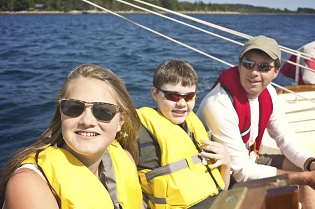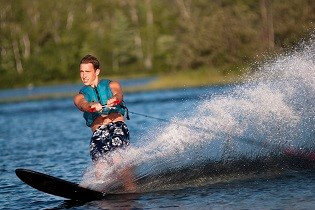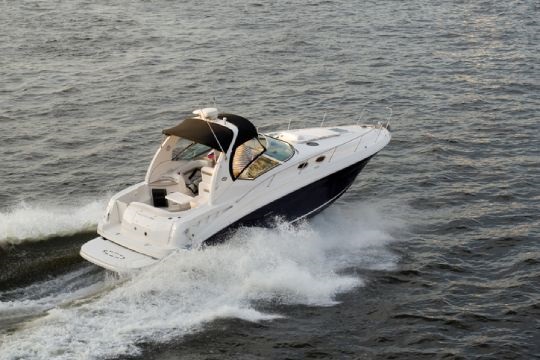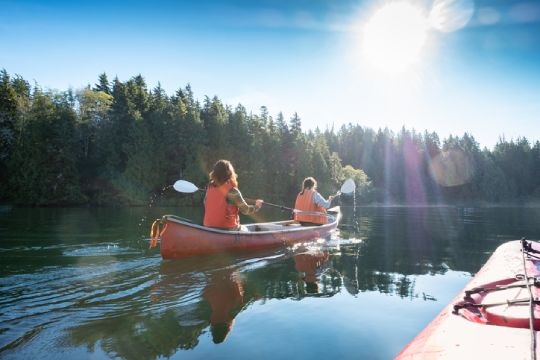 With nearly 12 million recreational vessels registered in the U.S., millions of Americans are enjoying time on and in the water.
With nearly 12 million recreational vessels registered in the U.S., millions of Americans are enjoying time on and in the water.
In 2021, the U.S. Coast Guard reported 4,439 boating incidents that resulted in 658 deaths, 2,641 injuries and about $67.5 million in property damage. Stay safe by being prepared and using the appropriate equipment, whether enjoying a ride on a motorized boat, paddling a kayak or wakeboarding.
Life Jackets Are Essential
Life jackets are at the core of safe boating, whether using a motorized or non-motorized vessel. The U.S. Coast Guard reports 81% of boating deaths in 2021 were due to drowning, and 83% of the victims were not wearing a life jacket.
While regulations on life jacket use vary from state to state, the Wear It program of the National Safe Boating Council promotes boating safety by encouraging boaters to wear life jackets any time they are on a boat, motorized or non-motorized.
Good swimmers still need life jackets. When people fall off a boat, they may become disoriented, injured or unconscious. Life jackets can keep victims’ heads above water so they can breathe and be rescued more easily. Every child should wear a life jacket at all times when boating.
Choose the right life jacket for the activities you will be doing. Double check to make sure the life jackets are U.S. Coast Guard approved and fit correctly:
- Make sure the jacket is a proper fit for your size and weight
- Make sure the jacket is properly fastened
- Hold your arms straight up over your head, ask a friend to grasp the tops of the arm openings and gently pull up; make sure there is no excess room above the openings and that the jacket does not ride up over your chin or face
Get Educated, Reduce Risks
The National Safe Boating Council encourages following these boating safety tips to minimize risks:
Be Prepared
Before setting out:
- Check that your equipment is in good working order; get a free vessel safety check with your local U.S. Coast Guard Auxiliary or U.S. Power Squadron
- Review a pre-departure checklist to ensure you have everything you need in your boat, including a tool kit and first-aid kit
- Before you leave, always file a float plan with someone you trust
- Dress properly and bring an extra set of clothes in case you get wet
- Don’t forget the sunscreen and know the signs of heat illnesses
Exercise Good Judgment
- Respect your limits and keep within your limits to avoid injury
- Don't drink and drive a boat; alcohol affects judgment, vision, balance and coordination
- Once on the water, use common sense; in a split second, a situation can arise or the weather can turn
- If you notice storm clouds, a sudden temperature drop or wind speed increasing, play it safe and get off the water
Safety Tips for Water Skiers, Tubers and Wakeboarders
 Skiing, tubing and wakeboarding are popular water sports, but they also can be dangerous with participants traveling at high speeds. Remember to take the following steps to minimize the risks:
Skiing, tubing and wakeboarding are popular water sports, but they also can be dangerous with participants traveling at high speeds. Remember to take the following steps to minimize the risks:
- Learn how to get up out of the water and how to safely use the tow rope
- Always have a spotter in the boat, and go over basic hand signals
- Make certain the towline is not caught in the propeller or wrapped around you prior to beginning
- Wait for the propeller to stop before getting back on the boat
- Enjoy these activities during daylight hours only

 With nearly
With nearly  Skiing, tubing and wakeboarding are popular water sports, but they also can be dangerous with participants traveling at high speeds. Remember to take the following steps to minimize the risks:
Skiing, tubing and wakeboarding are popular water sports, but they also can be dangerous with participants traveling at high speeds. Remember to take the following steps to minimize the risks:
